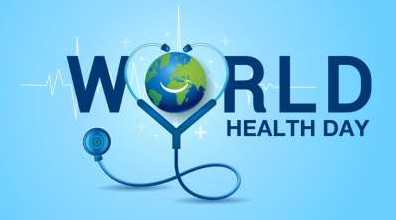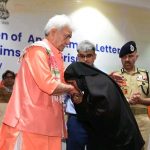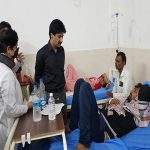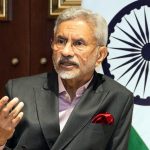Each year, the World Health Organisation (WHO) while observing its anniversary — selects a theme highlighting a specific topic of public health concern and runs a campaign to create awareness regarding the same among people globally. The campaign particularly envisages WHO’s constitutional preamble “the enjoyment of the highest attainable standard of health is one of the fundamental rights of every human being without distinction of race, religion, political belief, economic or social condition.” To mark its 76th anniversary, the theme selected for this year’s (2024) global health awareness day by WHO is “MY HEALTH, MY RIGHT”.
All over the world, some socioeconomic groups struggle for basic healthcare services owing to little daily income, having poorer housing conditions and education, fewer employment opportunities, experience greater gender inequality, and having little or no access to safe environments, clean water and air, food security and health services. This leads to unnecessary suffering, avoidable illnesses, and malnourishment — that harms our societies and economies.
Having said that, the basic objective of any healthcare system should ensure that every person who needs healthcare services should get them and not only those who can pay them. This is required to alleviate the financial costs associated with healthcare while making individual access to these services easier. According to a recent report by WHO, at least half of the world’s population do not have full coverage of basic health services. Moreover, around 100 million people are still being pushed into poverty because they have to pay for health care. WHO constitution of 1948 declaring health a fundamental human right and on the ‘Health for All’ agenda set by the Alma Ata declaration in 1978 envisages to bring the hope of better health and protection for the world’s poorest.
The slogan “Health for All” is possible only if all are mobilised for Health. This means not just governments and medical establishments, but peoples themselves. The people should not forget that health is not only a commodity that a benevolent government/ institution/ individual bestow on them. It has to be earned and maintained by the individual himself. Health problems cannot be solved in isolation. They will ultimately be part of our struggle for an egalitarian society, because better health care is a sign of a more evolved one. Only a popular realisation and an active movement of ‘All for Health’ can ensure the benefits of medicine and ‘Health for All’. Moreover, adopting a whole-of-government approach in tackling the root causes of inequities and increase investment in basic health care services — is key to meeting today’s challenges of ensuring Health for All and for building the resilience of tomorrow.
More to say, The United Nations High Level Political Declaration on Universal Health Coverage calls for accessible and equitable healthcare services to every single person and advocates greater emphasis on primary healthcare. India should be able to strengthen the three tier public healthcare system by adopting a strategy, with emphasis on pouring more resources into the primary healthcare centres. It is estimated that almost 90 percent of the medical treatment demand can be met at the primary healthcare level and few patients need to be referred to higher centers of the healthcare ladder.
Primary healthcare must be improved – starting with sub-centres, the first health post for the community. By staffing them with well-trained non-physician health care providers, both facility-based and outreach services can be provided without being doctor dependent. Sub- district hospitals too should be strengthened to provide high quality secondary care, some elements of essential tertiary care and training to different categories of health care providers. This would also help in relieving unending crowds in tertiary care hospitals.
The next priority should be to improve the size and quality of our health workforce. Without this, the promise of achieving Universal Health Coverage will remain an empty entitlement. Since primary health care is our first priority, resources must be devoted to the production of competent and committed community health workers for the frontline, mid-level health workers or AYUSH doctors for the sub-centres, and general and specialist nurses as well as non-specialist doctors for primary health centres.
More specialists are needed for higher levels of health care including the district hospitals. New nursing and medical colleges should be preferentially set up in districts which presently have very few, linking them to tertiary-care hospitals. It is indeed a matter of satisfaction that new medical colleges at district level are being set up by government. However more needs to be done to ensure adequate staff recruitment, strengthen all specialties, build infrastructure to ensure facilities, strengthen the emergency cure and improve patient care and management in the newly set medical colleges. Public health competencies must be increased through inter-disciplinary education which is aligned to health system needs. Improved management of all of these human resources must involve better incentives for recruitment and retention, cadre review and creation of well defined career tracks.
Another focus should be to provide essential medicines and diagnostics free of cost at all public facilities. At the same time, referral linkages and patient transport services should be improved to integrate primary, secondary and tertiary health care in the public system. Difficult to reach areas and vulnerable population groups should receive special attention, even as the principle of universality must be applied while designing health services. Regulatory systems need strengthening from hospital accreditation to health professional education and from drug licensing to mandatory adoption of standard management guidelines for diagnosis and treatment of different disease conditions at each level of health care.
A district wise inter-operable Health Information Network is needed to improve governance, accountability, portability, storage of health records and management. Moreover, community participation must be supported to actively engage people in the design, delivery, monitoring and evaluation of health programmes. Finally, larger healthcare investments and budget allocation should also be made in health promoting programmes in other sectors such as water, sanitation, nutrition, environment, urban design and livelihood generation.
(Author is a columnist and works at SMVD Narayana Superspeciality Hospital Jammu. Feedback: [email protected])








